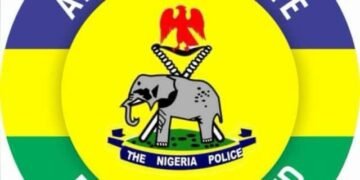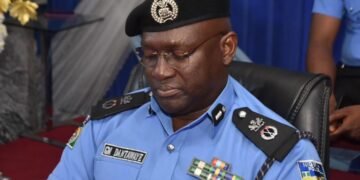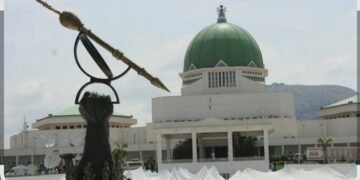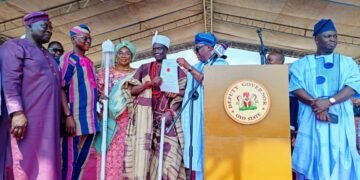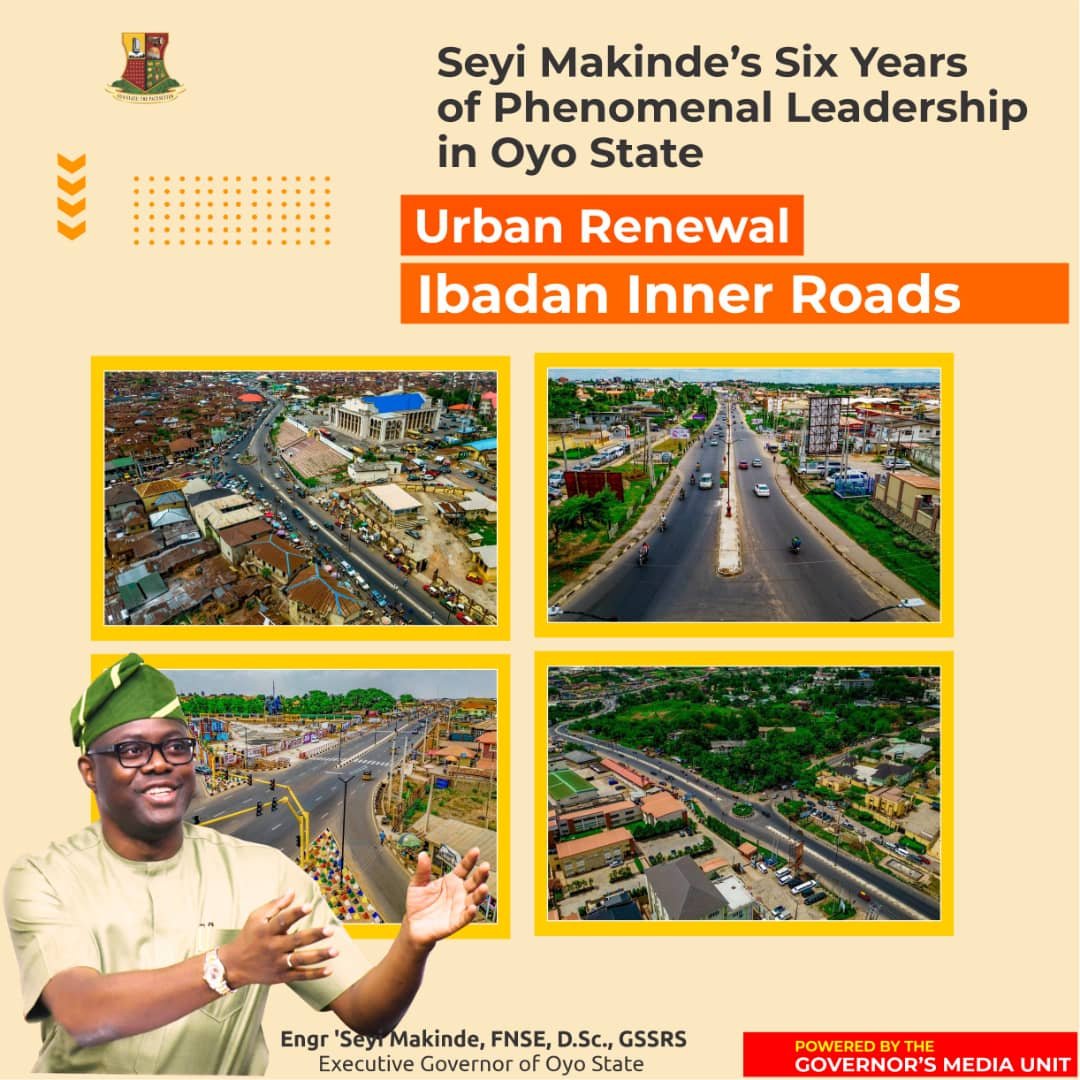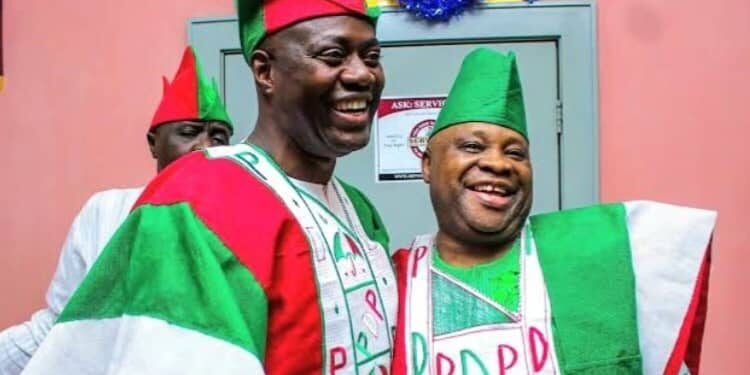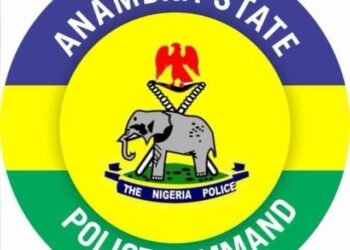By OlaOluwa Mimiola
The political landscape of Osun and Oyo states is currently characterised by a complex interplay between the Peoples Democratic Party (PDP) and the All Progressives Congress (APC). As political tensions rise, the dynamics within these states are further shaped by recent developments involving prominent figures such as Governor Ademola Adeleke of Osun State and Governor Seyi Makinde of Oyo State. Both governors are influential representatives of the PDP, and the only PDP governors in Southwest Nigeria, yet their political manoeuvres have attracted significant attention amid speculations regarding potential defections to the APC.
In Osun State, Governor Adeleke has been at the forefront of various initiatives aimed at consolidating power and ensuring the effective administration of state resources. His tenure has not been without challenges, especially as he navigates the expectations of his constituents and the competing interests within his political party. Similarly, in Oyo State, Governor Makinde is known for his progressive policies and governance style, which have garnered both praise and criticism. The two governors’ strategies and public statements suggest a keen awareness of the shifting power dynamics, particularly as both parties engage in a contest for political supremacy.
As many opposition bigwigs, especially the PDP, continue to join the ship of the APC, and the speculation regarding possible defections continues, the political future of both governors remains a focal point in the broader national narrative.
The position of Governor Ademola Adeleke
Governor Ademola Adeleke of Osun State is currently navigating a complex political landscape as he seeks reelection amidst speculation regarding his alignment with the ruling All Progressives Congress (APC). Recently, Adeleke publicly denied rumours of a potential defection to the APC, emphasising his commitment to the People’s Democratic Party (PDP). This assertion is particularly significant given the pressures he faces as a first-term governor, where the pursuit of reelection often comes with numerous uncertainties and challenges.
However, he is also confronted with the recent legal challenges regarding the federal government’s withholding of funds, which adds to the already complicated fiscal responsibilities of his administration. Meanwhile, according to SaharaReporters’ report, the APC is reportedly considering his plan to defect to the party due to the belief that his entry would help it gain control of Osun State.
“As of now, there are deliberations around Adeleke joining the APC. The considerations of the party (APC) leaders are that if he joins, it would help the party gain a foothold in Osun State, given that he is the incumbent governor. However, we are still waiting on what will happen,” SaharaReporters reported an APC chieftain.
The Osun State Chairman of the APC, Sooko Taju Lawal, told SaharaReporters that the party leadership was not involved in the process or aware that Adeleke wanted to join the APC, but did not categorically state that the party would reject him if he decided to join.
Political analysts suggest that any consideration of defection by Adeleke could drastically alter not only his political future but also that of the PDP in Osun State. A shift to the APC could be a rejection of the party’s core values, potentially alienating its base and undermining the party’s strength in the region. As he weighs his options, the implications of his decisions are profound; they could affect party dynamics and voter sentiment significantly. Thus, Governor Adeleke’s stance amidst these pressures remains pivotal as he navigates the lead-up to the next electoral cycle.
Governor Makinde’s Commitment to PDP
Governor Seyi Makinde has consistently affirmed his dedication to the People’s Democratic Party (PDP), particularly notable as he approaches the latter part of his second term.
On Friday, July 11, 2025, during the Southwest PDP caucus meeting held at the party’s Southwest zonal Secretariat, Ibadan, Makinde reiterated his commitment to the PDP, asserting that he will remain with the party regardless of any coalition efforts to challenge the current APC-led government in the 2027 general elections.
This commitment plays a critical role in maintaining the perceived stability of his administration. Governor Makinde’s steadfast alignment with the PDP not only shapes his governance approach but also significantly influences his political capital within the region. His strategies for loyalty involve continuous engagement with party members and leaders at various levels, ensuring that the party remains unified in both purpose and action.
In recent months, there have been whispers and speculations regarding potential pressures that could sway Governor Makinde’s allegiance. Despite the rumours surrounding possible defections to the APC, his public statements and actions suggest a firm resolve to stay with the PDP. By tackling internal disputes and offering fiscal management that benefits local governments, he has reinforced confidence among supporters and party members alike. Moreover, his governance strategy encompasses enhancing resource allocation and addressing community needs, which aligns with the broader goals of the PDP.
The dynamics within the PDP, especially in light of local government disputes and fiscal challenges, have contributed to the importance of maintaining strong ties to the party. Governor Makinde’s commitment serves not only to uphold party integrity but also to solidify his role as a leader who is responsive to the needs of constituents. As such, his relationship with the PDP will be crucial in determining the future political landscape of the region as potential shifts loom ahead. The implications of his continued allegiance extend to how he navigates current political events and strategises for a post-governorship future.
Future Implications for PDP and APC in the Region
The potential defection of either Governor Ademola Adeleke of Osun State or Governor Seyi Makinde of Oyo State from the PDP to the APC holds significant implications for the political dynamics in the region. As both PDP and APC vie for supremacy, the actions of these governors will undoubtedly shape the trajectory of local governance and council control. Recent legal disputes surrounding local government allocations have intensified the competition, making the stakes even higher for both parties.
Adeleke’s allegiance to the PDP has been pivotal in the party’s efforts to reclaim influence in Osun, while Makinde has solidified his standing by manoeuvring within the PDP’s structure. Should either governor decide to switch to APC, they could potentially destabilise PDP’s existing stronghold and embolden APC’s ambitions. This shift may lead to further polarisation between the two political organisations, resulting in increased tensions as they rally for voter support in upcoming elections.
Moreover, any decision by Adeleke or Makinde to leave their current party may influence lower-tier elections, particularly in local councils where control over allocations becomes critical. In a region characterised by its political fervour, these dynamics may also alert party loyalists and alter the grassroots mobilisation strategies of both PDP and APC. With local governance suffering from financial constraints exacerbated by the legal conflicts, any shift in party allegiance could redefine resource allocation and governance priorities in both states.
The ensuing rivalry and potential policy shifts will provide a litmus test for both PDP and APC, as they navigate an evolving political landscape. Future elections will be paramount in determining how effectively each party can leverage the decisions of Adeleke and Makinde to consolidate their respective positions of power. Therefore, the implications of these governors’ choices extend far beyond their parties, influencing the broader regional political discourse.
•OlaOluwa sent in this piece from Ibadan.

